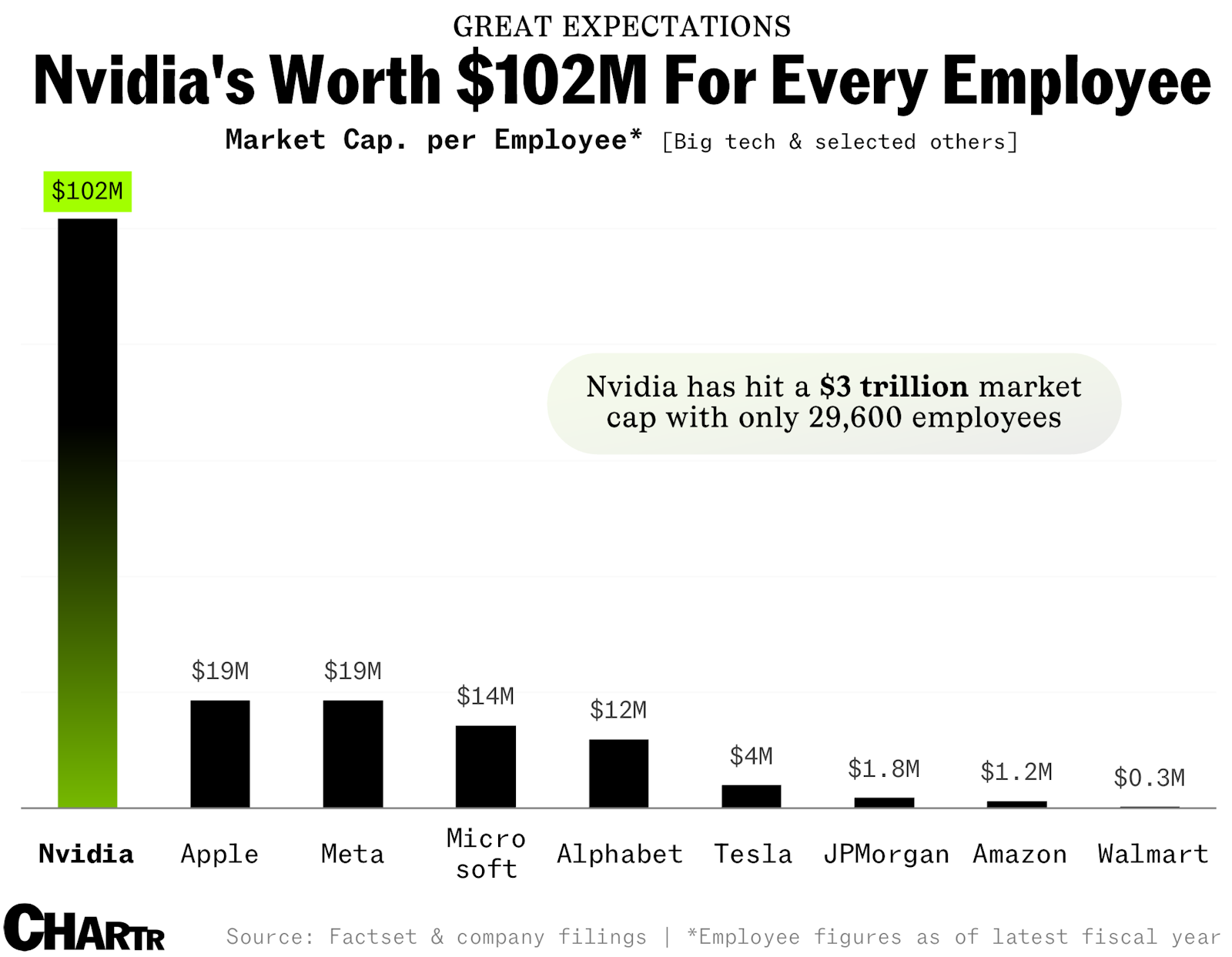I know this is more business than tech related, but for some reason I am not able to post it to the business community, so I’m posting it here.
"…For Nvidia, after this latest run-up took it north of the $3T milestone, the company is being valued at more than $100M for each of its 29,600 employees (per its filing that counted up to the end of Jan 2024).
That’s more than 5x any of its big tech peers, and hundreds of times higher than more labor-intensive companies like Walmart and Amazon. It is worth noting that Nvidia has very likely done some hiring since the end of January — I think the company might be in growth mode — but even if the HR department has been working non-stop, Nvidia will still be a major outlier on this simple measure.
We are running out of ways to describe Nvidia’s recent run… but a nine-figure valuation per employee is a new one."



Is there anything fundamentally superior about Cuda over open CL?
Yes: market share. And Nvidia has the top performing cards on the market, so there’s no reason to go with a competitor.
And inertia. Same reason x86/64 is still the king. Nobody wants to update their software to a new architecture
Exactly. People will do it if there’s a big enough incentive, but that just doesn’t exist for openCL.
I am not an AI programmer so I can’t really say. But CUDA had a head start and was some years ago allegedly the best combo with Nvidia hardware for AI programming. Over a period of time a lot of companies/projects have come to use CUDA, and so it has an advantage both for compatibility and know how among many AI programmers.
It’s kind of like how X86 has maintained a market lead on desktops and servers, despite ARM being very competitive. The change of API is disruptive and costly, so people stay with what already works.